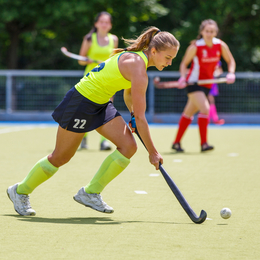
The Comeback Kids
Athletics serve as an extension of the classroom, teaching students to lead, communicate, and build resiliency.
It’s not whether you win or lose, but how you play the game. This philosophy is especially relevant in the world of school athletics. Student athletes learn important lessons about leadership, teamwork, and communication, as well as dealing with adversity, that can play a significant role in their future endeavors.
“Participation in school sports provides a learning environment, a way of life that exemplifies the philosophy that hard work, discipline, drive, and determination bring eventual success,” says Terri Fasano, athletic director at Gwynedd Mercy Academy High School in Gwynedd Valley. “We view athletics as an extracurricular activity, but it’s also an extension of the classroom where students learn about making and sticking to commitments, holding themselves accountable, preparation, and perseverance.”
In other words, school athletic programs contribute to the physical, personal, and social growth of student athletes. They also teach students how to collaborate, how to win and lose with dignity, and how to grow from one’s mistakes. While most student athletes get involved in sports for the love of the game, the lessons they learn along the way can become invaluable in college and later in life.
“Through athletics, students learn the value of competition, practice, how to work as a team, communication skills, and problem solving,” says Craig Conlin, athletic director at Holy Ghost Preparatory School in Bensalem. “These life lessons reinforce the lessons they’re learning in school and at home, and our fields, basketball courts, hockey rinks, etc., all become an extension of the classroom.”
Student athletes learn to take on leadership roles by working their way up to become team captains and guiding underclassmen who join their teams. Senior athletes such as Kelly Murray appreciate the opportunities that come from mentoring younger team members, both on and off the field.
“I didn’t realize how much of a role leadership played in athletics until I started high school,” says Murray, a senior at Gwynedd Mercy who participates in cross country, track, and swimming. “In my junior year I was chosen as a captain of the cross-country team, and I realized the importance of building a strong team culture and providing guidance to my teammates, who were looking up to me to lead them through the season. It was up to me to help motivate them and inspire them to succeed.”
When it comes to communication skills, the words of a student’s peers carry tremendous influence, according to Conlin.
“By helping others, the kids learn to help themselves,” he says. “Once the older students begin to teach the younger kids the rules of the game, showing them the right way to do things, and letting them know they’re doing a great job, you know that your coaching is working.”
Jack McDermott, a senior at Holy Ghost Prep who participated in basketball and baseball, believes being involved in sports throughout junior high and high school taught him the value of personal responsibility, time management, and the benefits of being part of a team. It also boosted his self-esteem.
“This year in baseball we had an uncharacteristically young team and I had to take on a leadership role,” says McDermott. “It’s important to set a good example for the younger kids on how to play, model good sportsmanship, teach them how to act on the field, and serve as a positive role model.”
Being involved in athletics can also help teach students that winning isn’t everything.
“We encourage students to focus on the process and the journey, rather than the destination,” says Conlin. “If a team plays well together but still loses a game, they can learn from their mistakes and come up with new strategies to succeed.”
Alannah Cunningham, a senior at Gwynedd Mercy who participates in rowing and swimming, says participating in sports helped her learn that “not everything in life will be perfect.”
“When I’m leading my team through a rowing competition, we may have a bad practice or a bad day, but we still need to get 180 strokes to get down the course,” she says. “Not all 180 strokes will be perfect, but the challenge is to focus on the good strokes that will move the team forward. If things go wrong, the best you can do is try to learn from it and have a positive attitude.”
The lessons students learn from participating in team sports were magnified during the pandemic, when most school sports were shut down for a large portion of their seasons due to safety precautions. Fasano of Gwynedd Mercy Academy suggests the experience helped build resiliency and camaraderie among students.
“The administration, board of trustees, parents, and students all came together to navigate through the challenges posed by the pandemic,” she adds. “Our motto became ‘mask up to protect and preserve your season,’ and we did everything we could to help keep ourselves, our students, and the community safe. Whether it was livestreamed games, virtual swim meets, or games without fans, the kids rose to the occasion and overcame the challenges to move forward once sports got into swing again.”
Published (and copyrighted) in Suburban Life, May 2021.


